What are actually the biggest environmental sins in everyday life? "Get started, live sustainably!“ – das sagt sich immer so leicht. Doch wie soll man anfangen und sich verbessern, wenn man gar nicht genau weiß, was man bisher „falsch“ gemacht hat.
So it is extremely helpful to know the eco-sins of mankind in everyday behavior. Every one of us has committed them or is committing them. That's not a big deal. But those who know their ecological missteps should at least try to commit them less often or not at all in the future.
In this article, I would like to introduce you to some of the biggest environmental sins in everyday life and show you what you can do to eliminate them. Let's go!
The 10 biggest environmental sins in everyday life
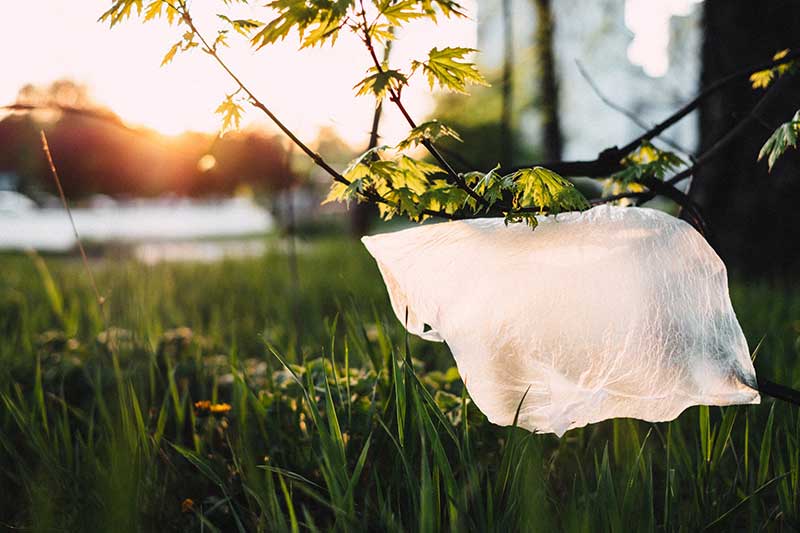
The biggest environmental problems of our time do not come from nowhere. Our everyday behavior has caused them - that is, what we eat, buy, tell others or idolize. To become part of their solutionIt is therefore extremely important to get to know the biggest environmental sins in everyday life. In the following, I will now present them to you in more detail.
1. use disposable plastic
Every hour, around 320,000 disposable cups for hot drinks are consumed in Germany alone, die bereits nach kurzem Genuss die Mülltonnen füllen.1 Then there's plastic cutlery, disposable grills, disposable cotton pads, disposable coffee capsules and tons of other throwaway stuff.
We have become comfortable - and let in our Disposable society prefer to turn petroleum into cheap disposable products over a long production process instead of using reusable products, such as porcelain coffee cups or stainless steel cutlery, and washing them briefly.
In the end, disposable plastic benefits only one thing: industry. The costs are borne by people, animals and our planet. Because a large part ends up as Plastic waste in the environment.
What you can do about this environmental sin:
- After the Zero Waste Lifestyle live and specifically avoid waste.
- Zero Waste Tips and ideas for the most plastic free life internalize.
- Prefer reusable to disposable products.
- Against Littering become active and forest or Organize Beach CleanUps.
2. fly with the airplane
Im Jahr 2019 gab es in der weltweiten Luftfahrt rund 47 Millionen Flüge.2 Sie sind der wesentliche Grund dafür, dass vor allem der Mass tourism a a decisive share of the man-made greenhouse gases wears.
For example, the flights from Frankfurt to Cancun in Mexico and back generate around 3.25 metric tons of CO2 per person as direct greenhouse gas emission. For comparison: this corresponds to about 16 months of average driving.3 (More at Tourism statistics)
Only about ten percent of all people in the world have ever had the chance to sit in an airplane. Wer zu diesen 10 Prozent gehört, sollte verstehen, dass Fliegen kein „Busfahren“ ist, sondern nur eine Alternative für Ausnahmesituationen darstellen sollte.
What you can do about this environmental sin:
- Sustainable travel and to the personal Climate Budget hold
- As possible sustainable flying and avoid forked flights.
- Forego flights and increase Vacation in Germany and Europe.
3. waste excessive amount of water
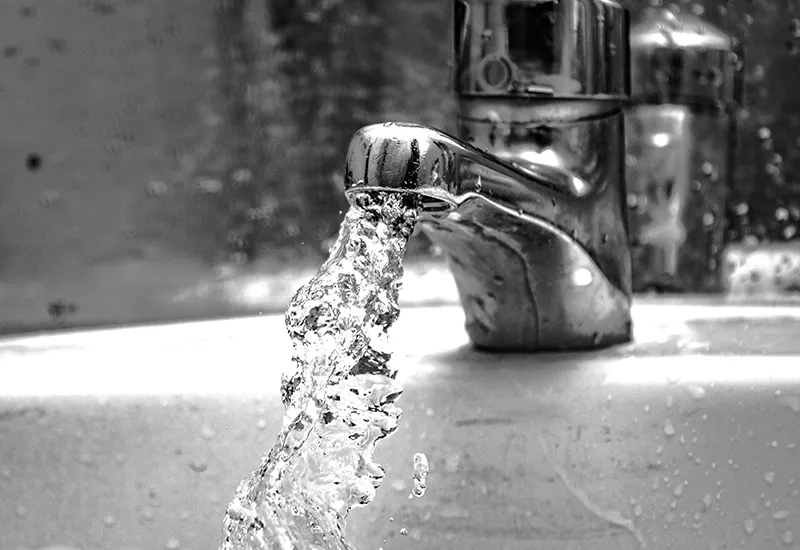
Water is a vital resource whose availability is declining in many parts of the world. Long showers, multiple flushing of the toilet or watering the garden not only pushes the local water supply to its limits, but also requires large amounts of energy to purify and transport the water.
However, we consumers primarily consume water indirectly in the course of our Food productionthat we eat or at the Clothing manufacturethat we carry.
How big the environmental sin of direct and indirect water consumption in combination actually is is shown by the so-called Water footprint. Every German consumes 2,628 cubic meters of water per year - that's about 7,000 liters per day.4
What you can do about this environmental sin:
- Take shorter showers and turn off water when soaping up.
- Install water-efficient appliances and fixtures.
- Consume plant products instead of animal products and Conserve resources.
- Prefer regional, seasonal and organic foods.
- Water garden in cooler morning or evening hours.
Recommendation: More Tips for saving water at home can be found in the detailed linked article.
4. consume fast fashion
We store ourselves out of our minds. While there used to be spring/summer and fall/winter trends, today new collections come out at what feels like weekly intervals. Who buys and needs it all? The Fast Fashion Industry creates almost only losers:inside.
In the end, only industry wins - consumers and nature pay the price. Because the goods are usually of inferior quality and often have to be bought again. The resulting textile waste and the discharged chemicals from the factories poison the environment.
Of course, this environmental sin in everyday life affects by far not only our clothing purchases, but also quite fundamentally our consumer behavior or the Buying unnecessary things.
What you can do about this environmental sin:
- Sustainable fashion prefer that is produced fairly and environmentally friendly.
- Live minimalist and well combinable, long-lasting fashion prefer
- The principle of Slow Fashion internalize.
5. eat meat and other animal products

Global meat consumption is steadily increasing. This fact contributes significantly to the global warming at. Indeed, the food sector is responsible for about 40 percent of European greenhouse gas emissions.5 Diese werden zum Beispiel durch Transporte, die Verdauung von Wiederkäuern, sowie die Deforestation released for the cultivation of fodder and the creation of grazing land.
In addition, among other things, the Soil and water contamination by pollutants from insecticides and fertilizers from agriculture.
What you can do about this environmental sin:
- Reasons for veganism internalize. (e.g. through the Dominion film)
- Sustainable cooking with plant-based foods and ingredients.
- Vegan lifestyle and generally abstain from animal products.
6. buy fruits and vegetables out of season
We live as in the Cockaigne and have become accustomed to being able to get everything at any time - including food.
But to enjoy many of them outside their normal growing season, they must either be grown in energy-intensive greenhouses or transported over long distances be achieved. This does not work without massive energy consumption and the emission of large amounts of CO2, which pollute the global climate. A real, ecological misstep of our everyday life.
What you can do about this environmental sin:
- Orient to the seasonal calendar and food seasonal shopping.
- Subscribe to vegetable boxes with seasonal vegetables from local farmers.
- Freeze food or ferment and enjoy them out of season.
- Grow your own vegetable garden and produce seasonally yourself.
7. throw away food
According to data from the Federal Statistical Office, around 78 kilograms of food waste per capita and year in Deutschland im Müll privater Haushalte.6
Food waste is not only a waste of well-earned moneybut also from natural resources. Any food that is thrown away also represents the water, land and energy costs involved in its production, processing, packaging, transportation and disposal.
Not to be forgotten are also the countless animals that died not only in agony, but also completely in vain for human food production. are.
What you can do about this environmental sin:
- Plan meals and groceries to avoid buying anything superfluous.
- Do not take the best before date too seriously and rely on senses.
- Store food properly and Utilize leftovers.
- Support food rescue initiatives. (e.g. Food Sharing)
8. use electricity from nuclear energy or fossil fuels.
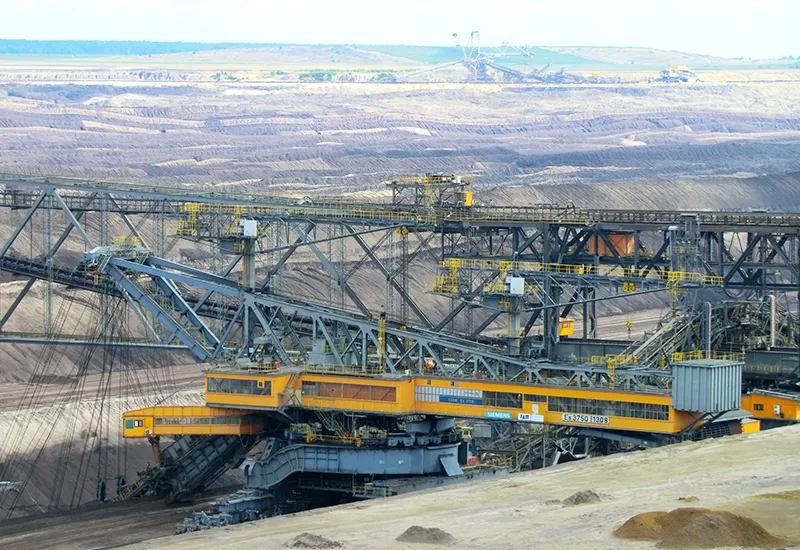
Im Jahr 2022 wurden rund 46 Prozent des Stroms in Deutschland aus erneuerbaren Energien erzeugt – das ist ein guter Wert.7 However, it also means conversely that the predominantly from sources that are only available to a limited extent and are harmful to the environmentsuch as nuclear or coal-fired power.
Those who still run their households on electricity generated by radioactive radiation or the burning of fossil fuels are committing an environmental sin every day. Especially the Open pit mining destroys entire landscapes - also in their own environment.
What you can do about this environmental sin:
- About Green electricity and renewable energy sources inform
- Here a green electricity comparison* make and change in 5 minutes.
9. excessive waste of electricity and heat energy
One problem is the origin of electricity in the home, the other is its excessive waste, which is caused mainly by more and more household technology, entertainment media and poor thermal insulation comes. The high heat and power consumption leads to increased greenhouse gas emissions - even more so if the energy still comes from fossil fuels.
What you can do about this environmental sin:
- Prefer modern heating technology, energy-efficient appliances and LED lighting.
- Use natural lighting and ventilation whenever possible.
- Also times cold showers and get the circulation going.
- Install motion detectors and use lights only when needed.
- For a sustainable thermal insulation of the walls.
Recommendation: These and more Energy saving tips I'll explain it to you again in detail in the linked blog post.
10. smoke cigarettes and throw them on the floor
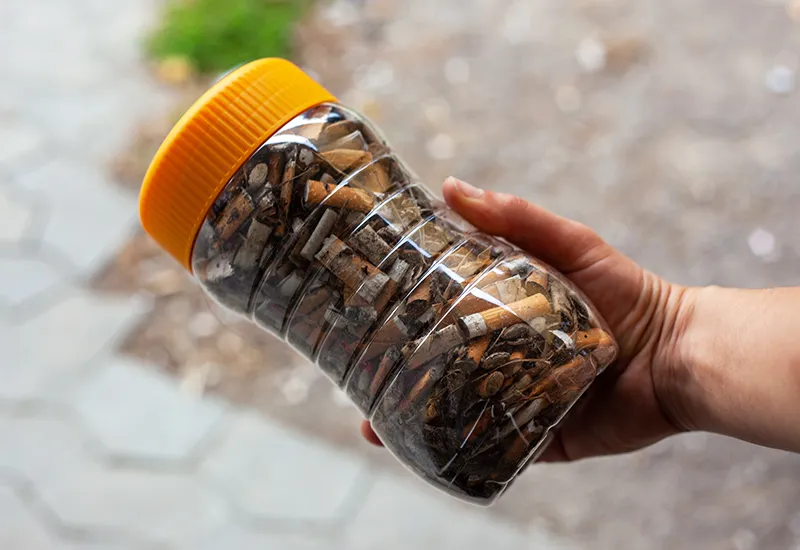
Every day, 15 billion cigarettes are consumed worldwide, 10 billion of which are disposed of in nature.8 Cigarette butts in the environment are logically a massive problem as a result.
The Filters are not biodegradable and the Toxins enter soils and waters. Many animals also mistake the stumps for food and die in agony from them. Anyone who smokes and disposes of their cigarette butts in nature is therefore committing a major environmental sin - usually on a daily basis.
What you can do about this environmental sin:
- The Advantages of quitting smoking internalize.
- Implement effective measures and work with the Stop smoking.
- One Pocket ashtray use and never throw butts on the floor again.
Can you think of other environmental sins in everyday life that people tend to commit unconsciously out of habit? Then, as always, feel free to write me a comment.
Knowing and specifically reducing environmental sins in everyday life
The list of these daily environmental sins can basically be continued indefinitely. For example, with the creation of a lifeless gravel garden, which contributes significantly to the species extinction contributes.
But in this post you have at least once met some of the most serious of their guild. Use the knowledge now to adjust your personal behavior, in order to Integrate environmental protection into your everyday life and to help other people do the same.
"Be yourself the change you wish to see in this world."
Mahatma Gandhi (more at Environmental protection quotes)
Do you have questions, tips or suggestions about the environmental sins of everyday life? Or do you know any other real environmental and climate killers? Then I'm really looking forward to your comments!
Stay sustainable,

PS: Change is often very difficult for us humans. I'll explain why that is and how you can make change easier for yourself next in the linked blog post.
References
- Deutsche Umwelthilfe e.V.: Gute Becher – schlechte Becher, abrufbar unter https://www.duh.de/becherheld-problem. [17.05.2023]. ↩︎
- Statista GmbH: Anzahl der Flüge in der weltweiten Luftfahrt von 2014 bis 2022 (Stand: März 2023), abrufbar unter https://de.statista.com/statistik/daten/studie/411620/umfrage/anzahl-der-weltweiten-fluege. [17.05.2023]. ↩︎
- Südwestrundfunk; SWR: Kreuzfahrtschiff, Flieger oder Auto – wie viel darf ich reisen? | Odysso – Wissen im SWR. YouTube, 12.05.2019, Web, 17.05.2023 um 18:56 Uhr, in: https://www.youtube.com/watch?v=3pSbXiKOWzE. ↩︎
- Federal Environment Agency: Water use in private households (as at: 14.10.2022), available at https://www.umweltbundesamt.de/daten/private-haushalte-konsum/wohnen/wassernutzung-privater-haushalte. [22.05.2023]. ↩︎
- Klima-Kollekte – Kirchlicher Kompensationsfonds gemeinnützige GmbH: Ernährung als wesentlicher Treiber des Klimawandels, abrufbar unter https://t1p.de/4kol. [22.05.2023]. ↩︎
- Bundesministerium für Ernährung und Landwirtschaft (BMEL): Lebensmittelabfälle in privaten Haushalten unter die Lupe genommen (Stand: 10.11.2022), abrufbar unter https://www.bmel.de/DE/themen/ernaehrung/lebensmittelverschwendung/gfk-studie.html. [23.05.2023]. ↩︎
- Federal Government: Questions and answers on the energy transition Share of renewable energies continues to rise (as of 03.04.2023), available at https://www.bundesregierung.de/breg-de/themen/klimaschutz/faq-energiewende-2067498. [23.05.2023]. ↩︎
- J. Görsch: 7000 Chemikalien und unzerstörbar: Täglich landen 10 Milliarden Kippen auf dem Boden (Stand: 23.02.2019). https://weather.com/de-DE/wissen/umwelt/news/2019-02-23-7000-chemikalien-und-unzerstoerbar-was-filterzigaretten-anrichten. [23.05.2023]. ↩︎

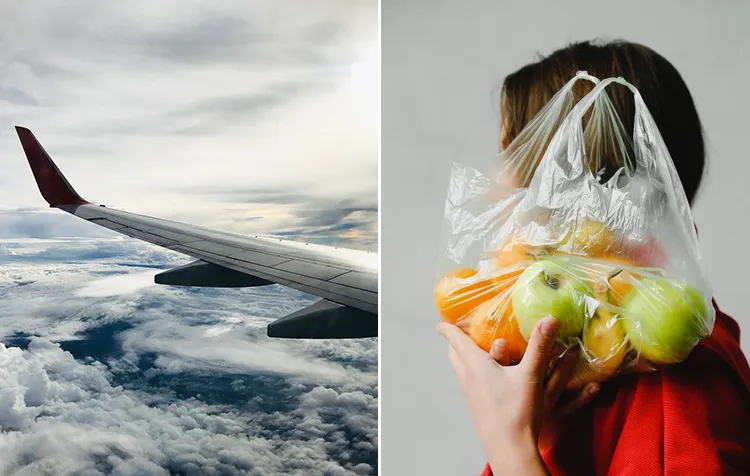







Actually, these are quite simple things and not so costly to replace. On the contrary. Only with the example of airplane one sees now on the basis of Corona what there and who hangs there everything to it, gainfully employed persons, people in the vacation regions, the economy etc.. If it becomes more ecological and more expensive, that would be progress.
Everyone but also everyone can contribute something.
LG
Ursula
I agree! It's not about destroying industries, but about making them more ecological in a targeted way.
Stay sustainable,
Christoph
Comments are closed.